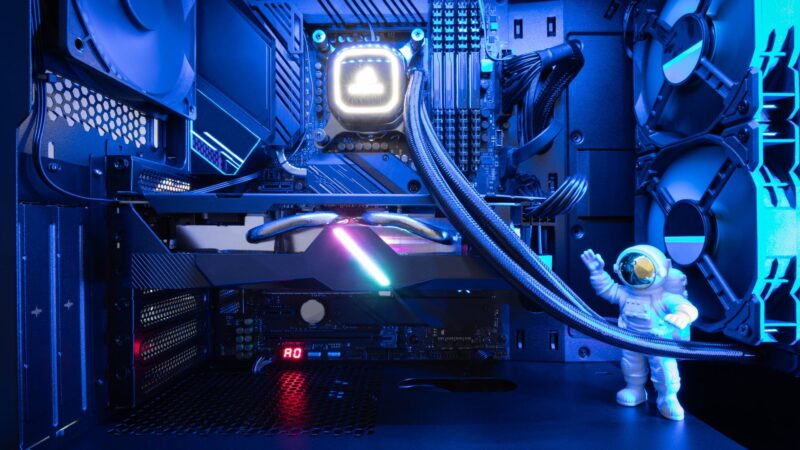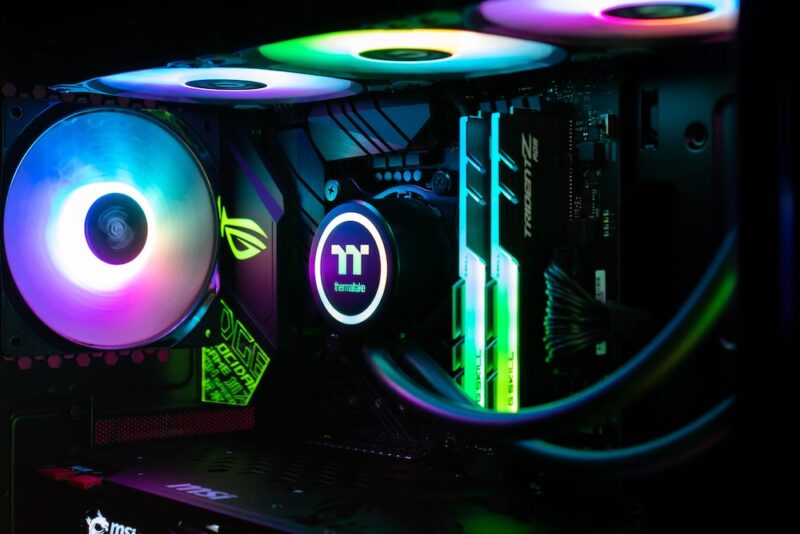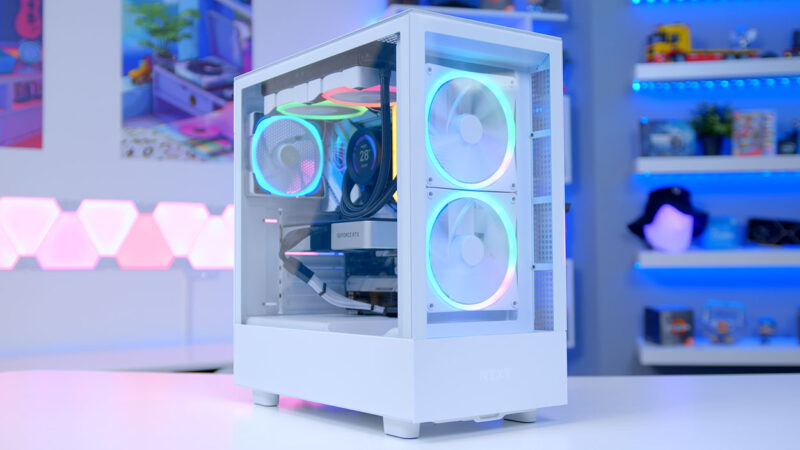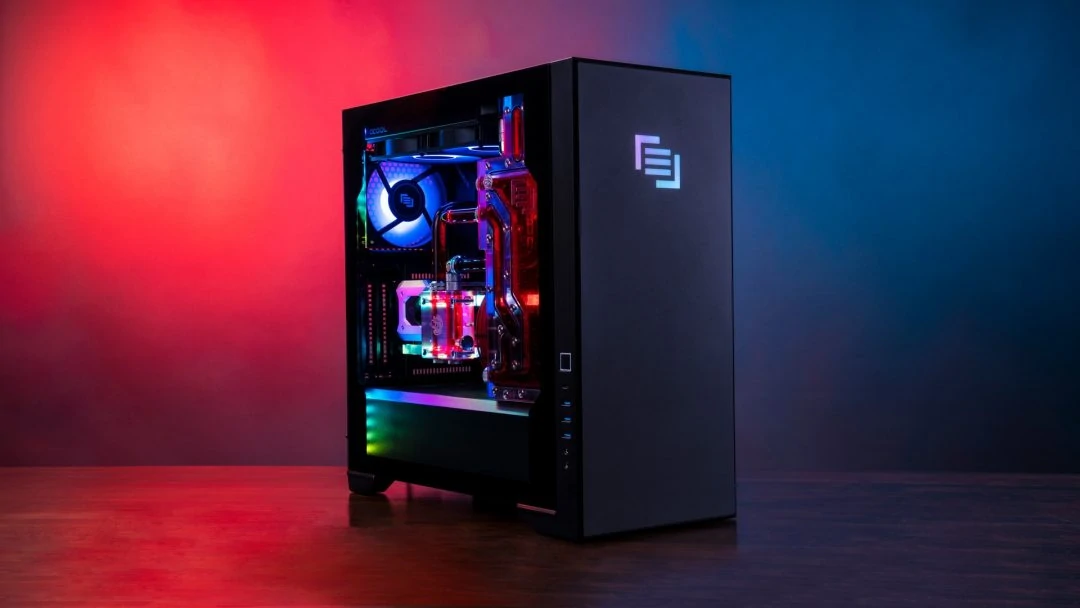The world of PC gaming is an ever-evolving landscape, with immersive graphics, thrilling gameplay, and the unparalleled satisfaction of achieving a victory royale. As the popularity of PC gaming continues to surge, the demand for high-performance systems becomes increasingly evident. But what does it take, financially, to dive into this exhilarating realm? Beyond the captivating RGB lights and state-of-the-art graphics cards, there’s a world of components that come together to create the ultimate gaming rig. Join us as we delve deeper into the intricacies of building a gaming PC and the costs associated with it.
Components of a Gaming PC

A gaming PC is more than just a sum of its parts. It’s a harmonious blend of components working in tandem to provide an unparalleled gaming experience. Key components include:
- CPU (Central Processing Unit): Often referred to as the brain of the computer, the CPU plays a crucial role in determining game load times and the overall efficiency of the system.
- GPU (Graphics Processing Unit): This component is responsible for rendering game graphics. It has a direct impact on the visual quality and frame rates of games.
- RAM (Random Access Memory): This temporary storage space is essential for active processes and significantly affects multitasking capabilities.
- Storage: Whether you opt for HDDs (Hard Disk Drives) or SSDs (Solid State Drives), storage plays a pivotal role in influencing game and system load times.
- Motherboard: Think of this as the central hub that connects all other components. It’s the backbone of your gaming rig.
- Power Supply: This component ensures that all parts receive the necessary power in a safe manner.
- Cooling Systems: Whether it’s fans or liquid coolers, these systems ensure that all components remain at optimal temperatures, preventing overheating.
- Case: Beyond just housing the components, the case plays a significant role in determining the aesthetics of your gaming PC.
Budget vs. High-End Builds
When it comes to building a gaming PC, there’s a spectrum of choices. On one end, you have budget builds, which might cost under $600. These systems might require some compromises, especially in terms of graphics quality or multitasking capabilities. On the other end of the spectrum, you have high-end builds. These machines, which can cost $2000 or more, are the epitome of gaming excellence, capable of running games on ultra settings, supporting VR, and even 4K gaming. It’s crucial to determine where you stand on this spectrum and choose components that align with your gaming aspirations. To be in touch with the world of gaming you’d be wise to follow TheClashify and similar establishments well-versed in this domain.
Factors Affecting Cost
The cost of building a gaming PC can vary based on several factors:
- Component Quality: Higher quality components tend to be more expensive.
- Brand Prestige: Some brands command a higher price due to their reputation in the market.
- Technological Advancements: Cutting-edge technology can drive up the price of components.
- Market Dynamics: Factors such as a limited-edition GPU release can influence prices.
Component Breakdown and Cost Range

When budgeting for a gaming PC, it’s essential to understand the cost range for each component:
CPU:
- Entry-Level: $100-$150
- Mid-Range: $150-$300
- High-End: $300-$500+
GPU:
- Entry-Level: $150-$250
- Mid-Range: $250-$500
- High-End: $500-$1500+
RAM:
- Entry-Level: $30-$60
- Mid-Range: $60-$120
- High-End: $120-$250+
… and the list goes on for other components. The key is to strike a balance between performance and price.
Pre-built vs. DIY Cost Comparison
There’s a debate in the gaming community about whether it’s better to buy a pre-built system or build one from scratch. Building your own PC can be a rewarding experience, both in terms of cost-effectiveness and the sense of accomplishment. On the other hand, pre-built systems offer the convenience of a ready-to-use machine, but they might come with markups. Additionally, building your own PC gives you the freedom to customize it to your liking.
Price-to-Performance Ratio
It’s not just about how much you spend, but what you get for your money. The price-to-performance ratio is a metric that helps gamers determine the value they’re getting for every dollar spent. It’s about finding that sweet spot where you’re not overspending for minimal performance gains.
Future-Proofing and Upgradability

In the rapidly evolving world of technology, what’s considered top-of-the-line today might become obsolete tomorrow. Future-proofing your gaming PC means investing in high-quality components that won’t require frequent upgrades. It might be worth considering a more powerful power supply or a versatile motherboard that supports future upgrades.
Hidden Costs and Accessories
Building a gaming PC is an intricate process that goes beyond merely assembling the primary components. While the heart of the system lies in the CPU, GPU, and RAM, the peripherals play a crucial role in enhancing the overall gaming experience. Keyboards, tailored for gaming, offer features like mechanical switches and RGB lighting. Mice, designed for precision, can drastically improve in-game accuracy.
Monitors, especially those with higher refresh rates and resolutions, can transform visuals entirely. Gaming chairs, often overlooked, provide ergonomic support for those long gaming sessions. However, these additions come with their own price tags. Furthermore, accessories such as immersive headsets for 3D sound experiences and cable management tools to maintain a neat setup are not just aesthetic but functional, and they too can add to the overall expenditure.
Building vs. Paying for Assembly
While building a PC can save you money, it requires time, patience, and a certain skill set. If you’re not up for the challenge, you can opt to pay for professional assembly. However, this convenience comes at a price.
Price Fluctuations and Timing
The tech market is dynamic, with prices fluctuating based on various factors. For instance, the rise of cryptocurrency can lead to increased GPU prices. Similarly, the launch of a new product can reduce the prices of older models. Being strategic about when you buy can lead to significant savings.
Conclusion
Embarking on the journey of building a gaming PC is an exhilarating experience. It’s a delicate balance between fulfilling your gaming dreams and staying within budget. As you dive deep into the world of PC gaming, consider your long-term goals and aspirations. After all, there’s no greater satisfaction than powering up a machine that’s been tailored to your specific needs.

